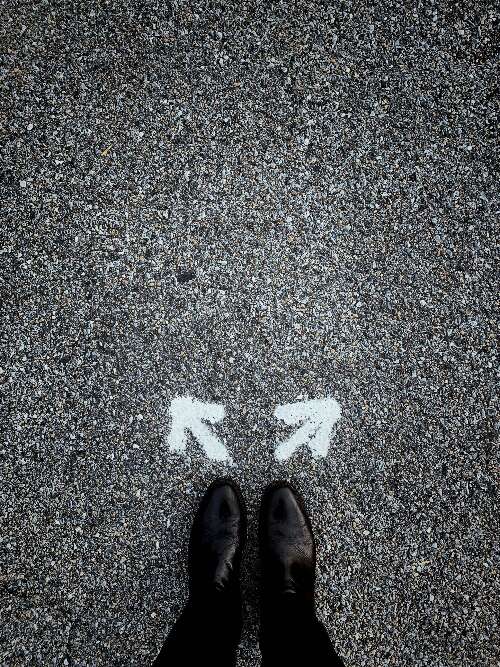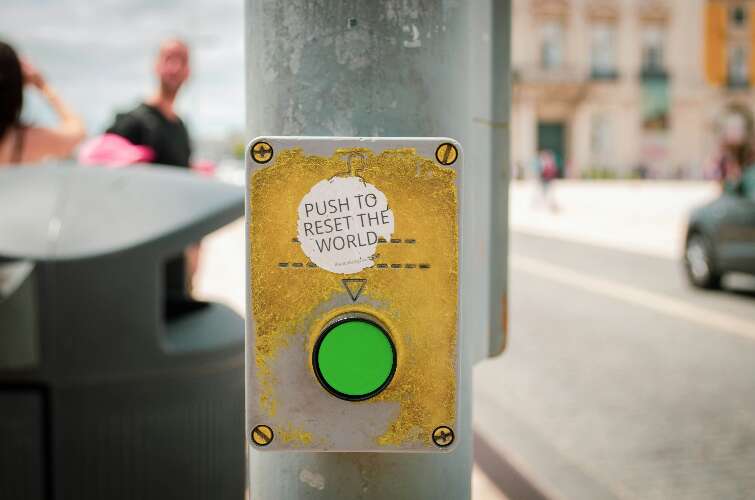People rarely tell me their opinion about my articles. Most of them just ignore them completely, especially the people around me who have been taken over. They only want to talk about mainstream subjects and opinions. I can imagine that an average person reading my articles doesn’t know what to think and is overwhelmed by strong criticism or disbelief. Because what is written in my texts is not how reality behaves, is it? They will think, I believe everything I read! And that’s why I want to talk about the concept of ‘criticism’.
Nowadays there is a general opinion that a critical attitude is good. The pinnacle of people with a critical attitude are the sceptics, who by default adopt a critical attitude towards all phenomena that are outside the material mainstream paradigm and do not accept any of the information that is outside it. As a result, they have a blind spot for about half the world. Their attitude is reflected everywhere and they seem to be the defenders of the status quo, and they are often proud of this. Ghosts? Nonsense! Aliens? Nonsense! Telepathy? Bullshit! Free will? Bullshit! Robots? Yeah, yeah, great! Man as a machine? The pinnacle of advanced knowledge!
One step of learning to think critically, is to be critical towards others. For some people this goes too far, it becomes extreme: they are only critical towards others, and cannot be critical of their own way of thinking or behaviour. These are the ‘master thinkers’, who try to dominate others. They often want to ‘debunk’ someone else, and they are blind to the mistakes in their own way of thinking.
Another step of learning to think critically is to be critical of yourself. This is important because it allows you to observe your own thinking, and to correct your train of thought or behavior. Self-criticism must be in balance with the criticism of others. Too much self-criticism and too little criticism of others is another extreme we encounter. Often there is not even contact with one’s own core. And that person often suffers from ‘slave thinking’.
Combinations of these two extremes are also possible. That is someone who has slave thinking among men for example, but master thinking among women. That depends entirely on the personality, which in the first 5 years of a life is formed by the interactions with the other family members. These interactions form the brain and determine how certain areas of the brain work together or fight each other.
I know from experience that many people direct their anger and criticism mainly towards people who are below them, or towards people who are on an equal footing. They don’t have the guts (or the decency) to direct it at people who are above them, where it belongs. Therefore, many employer-employee relationships are one-way. If the criticism cannot be freely directed upwards, people will blindly accept what the one above them proclaims. Questioning things, is only pointed downwards. And the caregiver (or boss, or scientist, or religious leader) who stands above them, on which they have become dependent, is defended in everything. That is what we see with the sceptics. They think that the world is as the state and the most popular scientists have told them, and here they dare not ask critical questions. In fact, they will punish anyone who does.
Since many of the popular scientists in this day and age focus exclusively on the material aspect of reality, we see many sceptical materialists who have an incomplete picture of reality and have misinterpretations of all information. On the other hand, however, we see those who only focus on spiritual reality, and cannot give the material a place in themselves. These are often very religious people, who see only the spiritual aspect of reality, and they do not critically question the things they believe, because they think that this means that the whole reality that their priest presented to them, will collapse. What I want to say to those people is: You don’t have to throw the baby out with the bathwater. There is a place for both the spiritual and the material.
I am of the opinion that being critical should have a function. And that is to learn how the world works. Many people see their criticism as the last word. They ask a critical question or make a critical remark, and then they think they’ve proved themselves right. Or they catch others on a mistake (usually a detail), and then they think they have disproved the whole way of thinking. Or they remain silent and do not ask critical questions, while they should. All annoying behaviours, I think. If you have serious criticism, ask a critical question, and look for the answer. Do you come across something that makes you think: ‘huh’? Then ask a critical question again and perform a search for the answer. And if someone you ask something has no answer for you, it does not mean that there IS no answer. Go search for it! Being critical always depends on what you already know or think you know. And from my own experience I know that that is not always right. That is why it is important to be critical of yourself, and that must be nicely balanced with your criticism of someone else. You can then also ask yourself critical questions: ‘Is it true what I am thinking right now? Or ‘Is it true what people have taught me here’. Only then can you start a real search for truth by conducting a constant dialogue within yourself with the help of all the information you take in. You then no longer defend by default the people above you and you take not only authority seriously, but also the people below you. If you want to find truth, you must, as I have described earlier in my articles, go straight to the subjects you are inclined to reject. And as soon as you have the answers, you will see that you can let go of criticism to many people who talk about certain things you had not discovered before, but now you do, because now you understand what they are talking about. Then criticism has served its purpose. Being critical is not a good thing if you don’t start looking for answers afterwards. I see it as an expression of one’s own lack of understanding of reality.
As soon as you have a good understanding of reality and you are no longer dependent on someone else, you can choose to bring your judgment in line with your moral awareness, like a good but strict father or mother behaves. Thoughts, feelings, perceptions and actions then can become one. You then use your criticism to take care of someone, or to hold someone to certain standards. Not as an expression of your own lack of understanding, but precisely because you do understand it! All the knowledge you have is then fluid and you can reason as follows: “If this is not true, this is true. And if this is true, this is not true”. And the final goal is then to confront real evil, not the supposed evil you thought was evil from before.
It would be very logical if people criticised my articles. For example, I hardly use source references, because I often don’t even remember where I found it. All I want to do is encourage people to investigate things for themselves. They don’t have to believe me, but it’s annoying when you repeatedly come across people who show that they don’t believe you, but don’t bother to investigate for themselves. That is just frustrating. Now that we all have internet, and all the information is available, it’s no longer right that you don’t look in to it. Because people are seriously dying! I wish everyone who dares to go for it, a fruitful search.





